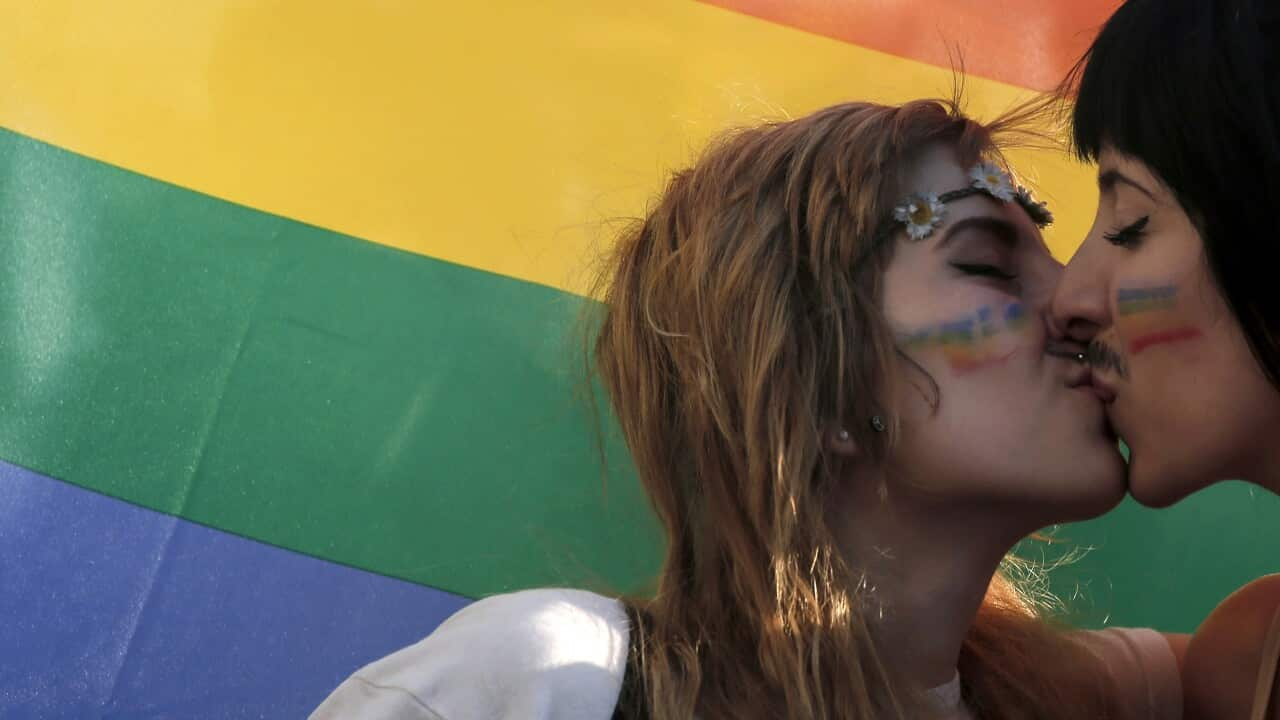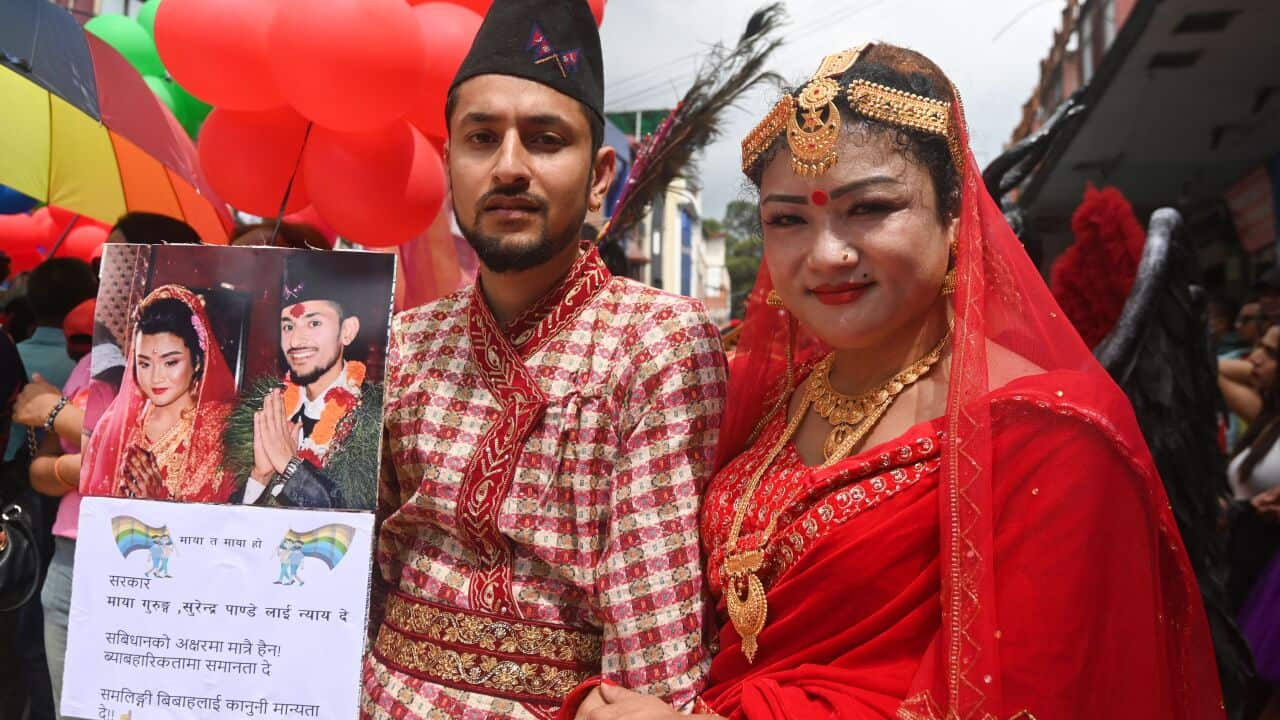Key Points
- Greece is the latest country to pass a law that legalises same-sex marriage.
- Same-sex marriage is legal in over 30 jurisdictions around the world.
- Czechia, Thailand and Nepal could be the next countries to fully legalise same-sex marriage.
Greece has joined the list of countries with a law that legalises same-sex marriage, making it the first Orthodox Christian country to do so.
While many countries have legalised same-sex marriage, many more have yet to.
Here are some that might be next in the queue.

Map same sex marriage.
Where is same-sex marriage legal?
Same-sex marriage has been legalised in 36 jurisdictions around the world.
The Netherlands was the first country to legalise it in 2001.
Since then, 16 countries in Europe, six in Latin America, Canada, the United States, Australia, New Zealand, and South Africa have also legalised same-sex marriage. Self-governing island Taiwan has also changed the law.
Who could be next?
Since 2006, Czechia (formerly the Czech Republic) has allowed registered partnerships for same-sex couples but has not permitted them to marry.
Registered partnerships do not allow for same-sex couples to jointly adopt children, own property or receive widow or widower’s pensions.
In June 2023, the Czech parliament's lower house gave initial approval to a bill to allow same-sex marriages.
Polls from the Public Opinion Research Centre of the Institute of Sociology of the Academy of Sciences in Czechia revealed that 60 per cent of Czechs support same-sex marriage.
In September 2023, an open letter signed by the CEOs of 66 businesses was sent to Czech Prime Minister Petr Fiala.

A bill legalising same-sex marriage has been passed its first two readings and is awaiting its third reading. Source: EPA / MARTIN DIVISEK/EPA
The letter urged the government to support the adoption of a bill that would legalise marriage for same-sex couples, saying it would be good for the economy.
The bill passed its second reading on 6 February. The third reading will take place at the end of February.
A beacon of LGBTQIA+ rights
Nepal is becoming widely known as a beacon for LGBTQI+ rights in Asia.
It elected Asia's first openly gay member of parliament in 2008 and Nepal's 2015 constitution recognised LGBTQIA+ rights as fundamental human rights.
In 2008, Nepal’s Supreme Court passed legislation that paved the way to allow for same-sex couples to marry.
Nepal’s civil code currently refers to marriage as being between a man and a woman.
On 28 June 2023, Supreme Court Justice Til Prasad Shrestha directed the government to establish a separate marriage register, for people of same-sex and non-traditional couples, to temporarily register them while the court debates the marriage equality case.
Human Rights Watch reported that many same-sex couples have tried to register their marriages but have been unsuccessful due to bureaucracy.
Maya Gurung and Surendra Pandey, an LGBTQIA+ couple were told that the courts had to change the laws before the marriage could be registered.
After two attempts, they were successfully able to register their marriage.
A first for South-east Asia
Taiwan is currently the only jurisdiction in Asia that has legalised same-sex marriage — that could soon change.
Thailand is known for having a vibrant LGBTQIA+ community and has been a hub for such travellers for years.
Now, it's on the verge of becoming the first country in Southeast Asia to legalise same-sex marriage.
In December 2023, legislation was introduced to Thailand’s lower house to legalise same-sex marriage.
All but 11 of 380 MPs present voted to approve the draft legislation.

Thailand could soon become the first country in Southeast Asia to legalise same-sex marriage (Photo by Peerapon Boonyakiat/ via Getty Images) Source: LightRocket / SOPA Images/SOPA Images/LightRocket via Gett
The bill will now go to the upper house. If passed, the new law would grant same-sex couples the right to marry as well as adopt children.










